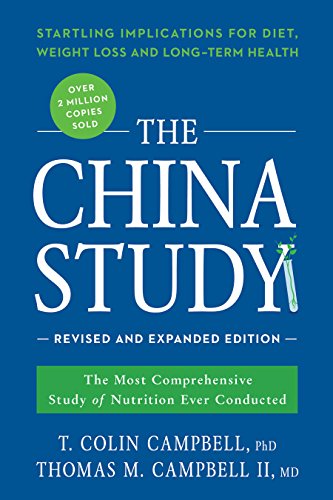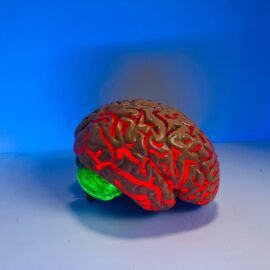

This article is an excerpt from the Shortform summary of "The China Study" by Colin Campbell. Shortform has the world's best summaries of books you should be reading.
Like this article? Sign up for a free trial here .
Eating a whole foods, plant-based diet isn’t a new idea. Socrates, via Plato, predicted that a society that indulged in the luxury of meat would lead to a society plagued with inflammation and disease. The winning athletes in the ancient Olympics also knew that eating a plant-based diet was the key to good health and performance. So how did we get where we are today, promoting meat’s health benefits and worrying that vegetarians don’t get enough protein? Some say the future is vegan — is it?
Despite the detour we’ve taken as a society, there’s reason to believe that we’re slowly returning to a culture that values plant foods. Let’s look at why.
Reasons the Future Is Vegan
There’s reason to think that the future is vegan and that the medical world particularly is becoming aware of the health dangers of animal products.
Reason #1: The body of evidence supporting a whole foods, plant-based (WFPB) diet, from hundreds of rigorous studies, keeps growing. (For accessible research, see the book The China Study or the documentary Forks Over Knives, which have contributed to the rise of veganism.)
Reason #2: We have a better understanding of how animal proteins usher carcinogens into cells and increase growth hormone levels, increasing cancer risk.
Reason #3: We have the technology to measure blood sugar, cholesterol, and insulin to better track how a WFPB diet can treat and even reverse Type 2 diabetes.
Reason #4: We have a better understanding of how animal proteins can mimic our own, potentially leading to autoimmune diseases like Type 1 diabetes.
Reason #5: We understand the mechanisms behind how animal proteins increase calcium and oxalate in the kidney, leading to kidney stones.
Reason #6: There’s growing evidence that antioxidants in plant foods can prevent vision issues such as cataracts and macular degeneration.
Reason #7: We now know that animal protein makes blood more acidic, which depletes bones of calcium, increasing your risk of osteoporosis.
Reason #8: Literacy rates throughout the world are higher than ever. This means more people can access health information and apply it to their diets, rather than relying on the advertisements of multi-billion dollar food industries to tell them what to eat. This has also had a huge impact on the rise of veganism.
Reason #9: Vegetarianism, and even veganism, is less taboo than 20 or 30 years ago, and vegetarian restaurants are popping up all over the country, even beyond big cities. Also, many “traditional” restaurants now include plant-based offerings. Veganism, too, is becoming mainstream.
Reason #10: The medical community is slowly becoming more receptive to getting training in nutrition. In recent years, Dr. T. Colin Campbell of Cornell University has given about 200 lectures at medical schools and conferences.
Overall, veganism is on the rise. Making dietary changes, especially ones so counter to how our culture tells us to eat, is hard. But as the public becomes aware of how the food and drug industry influences what lands on our plates and as doctors come to view food as a valid treatment option, these changes will feel not only natural but obvious. We may be able to remain an affluent country while defeating our diseases of affluence. This is why the future is vegan.
———End of Preview———

Like what you just read? Read the rest of the world's best summary of "The China Study" at Shortform . Learn the book's critical concepts in 20 minutes or less .
Here's what you'll find in our full The China Study summary :
- Why animal proteins (meat, milk) might cause cancer, diabetes, and other diseases
- Why the medical institution is structured to hide the truth about disease and food
- The precise diet you'll need to eat to live longer and feel happier






